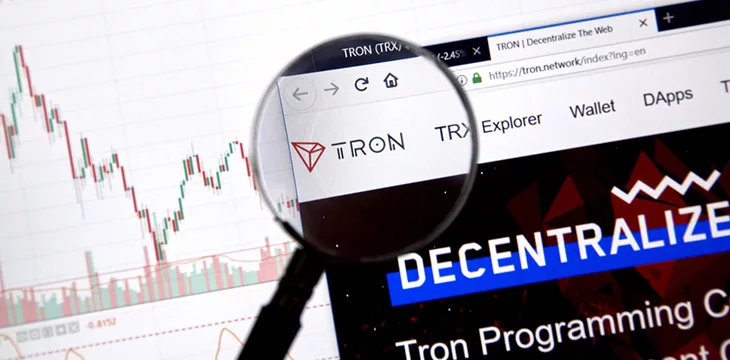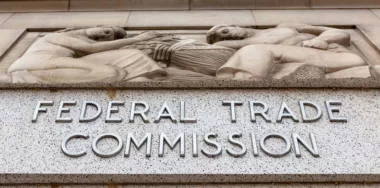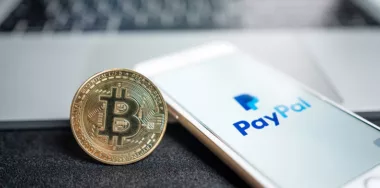Justin Sun’s Tron blockchain is coming under renewed fire for its terror ties, while the solvency of Sun’s HTX and Poloniex exchanges appears very much up in the air.
On November 28, Reuters published an update on Tron’s growing popularity with Islamic terror groups, to the point that it has eclipsed BTC as the chain of choice for Iranian-backed groups such as Hamas and Hezbollah. Reuters says its analysis of ‘crypto’ seizures by Israel’s National Bureau for Counter Terror Financing (NBCTF) since 2021 demonstrates this shift from BTC to Tron.
Mriganka Pattnaik, CEO of blockchain analytics group Merkle Science, said BTC’s
notoriously high transaction fees and slow confirmation times helped convince terror groups that Tron was a better option. Tron is also the most popular chain for new issuances of the Tether (USDT) stablecoin, the preferred digital currency of terror groups.
Since July 2021, the NBCTF has frozen 143 Tron wallets based on their connections to a designated terrorist organization or a “severe terror crime.” Most (87) of these wallets were frozen this year. Tron’s gains have come at the expense of BTC, as the NBCTF reported no BTC wallet seizures since their original actions in 2021.
In March, the NBCTF seized 46 Tron wallets linked to Hamas that the bureau claimed were also connected with the Gaza-based Dubai Co money exchange. Following the October 7 attack by Hamas on Israeli soil, the NBCTF froze over 600 accounts at Dubai Co, which the bureau considers a terrorist group due to its alleged transfers of funds on behalf of Hamas. Reuters contacted several individuals linked to the Dubai Co accounts, all denying any links to terror groups.
On Tuesday, CNBC quoted ex-Mossad officer Uzi Shaya saying Israeli intelligence “saw a 70% increase in money given to Hamas-linked charities” since the October 7 attack. In dollar terms, that would amount to around $100 million in additional funding in under two months.
Shaya didn’t specify how much of this additional funding was donated via digital assets, but he echoed the Reuters report regarding Tron’s newfound popularity. Shaya also claimed that Tron was dodging requests from Israel to cut off accounts linked to Hamas.
In a separate report, Reuters revealed the formation of a new international task force involving the U.S., the U.K., Australia, Canada, and multiple European Union member states. The new group’s aims are to enhance the sharing of intelligence on terrorist-financing-related matters and to stop the flow of funds to groups like Hamas.
In a related move, Politico reported Tuesday that the U.S. Treasury Department is asking Congress for new powers to target digital asset platforms believed to be facilitating terror-linked transfers. Deputy Treasury Secretary Wally Adeyemo asked Congressional leaders for the tools “to build an enforcement regime that is capable of preventing” blockchain-based terror financing.
The requested tools include (gulp) direct authority over all U.S. dollar-denominated stablecoins, which could spell major trouble for entities such as Tether and the folks behind FDUSD. Not to mention Sun’s own TrueUSD (TUSD), which has a worse record than Tether in proving it has actual fiat reserves backing its coins.
In theory, the Treasury plan could prove problematic for USDC, the stablecoin issued by U.S.-based Circle. But Circle and its erstwhile USDC partner Coinbase (NASDAQ: COIN) have friends in Congress who can be counted on to go easy on the pair. And while Coinbase would likely be forced to delist USDT under such a scheme, having Uncle Sam go after USDC’s rivals might not be such a bad trade-off.
Putting the error in terror
Getting back to Justin Sun, in an apparent response to Monday’s Reuters article, Sun
tweeted a vague statement claiming that Tron was “committed to combating terrorist financing by integrating various analysis projects and partners.” However, Sun said Tron’s “top priority remains maintaining decentralization, ensuring the safety of everyone’s assets, and providing instant, affordable, and reliable transactions.”
Sun closed by extending his “great appreciation to everyone in our industry who is contributing to the widespread adoption of cryptocurrency.” Given the context, Sun’s comments could well be interpreted as ‘terrorists have rights, too.’ That may be an uncharitable interpretation, but Sun’s documented proclivity for criminality doesn’t extend him any benefit of the doubt.
Sun’s comments look even more ill-advised when considering that the bulk of USDT is issued on Tron, including $5 billion new USDT in just the past three months. Worse, Tether admitted last week having “recently onboarded the United States Secret Service into its platform and will be working with the Federal Bureau of Investigation to do the same.”
Tether’s sudden willingness to cooperate with U.S. authorities follows last week’s $4.3 billion settlement between the U.S. Department of Justice (DoJ), the Binance exchange—where much of all issued USDT eventually finds itself—and its founder Changpeng ‘CZ’ Zhao. Tether has also come under fire in the halls of Congress for its popularity with terror groups, an undesirable designation with which Sun and Tron have also found themselves tarred.
Recent months have seen Tether break with tradition by blacklisting certain Tron wallets that have moved large quantities of USDT and may have interacted with some of the entities sanctioned by Israeli authorities. Previous USDT blacklists largely focused on the Ethereum chain, but Tron’s lack of crippling ‘gas’ fees and the growing dominance of USDT on Tron appears to have tipped these scales in its favor (so to speak).
Your deposit is important to us
Meanwhile, Sun’s two digital asset exchanges—HTX (formerly Huobi) and Poloniex—are showing faint signs of life after effectively blocking customers from their assets for weeks following a rash of ‘security breaches.’
On November 26, Sun announced that BTC deposits and withdrawals were once again permitted on HTX, and “we aim to restore the remaining currencies gradually in the next few days.” Meanwhile, Poloniex isn’t planning to restart deposit and withdrawal services until November 30, and even that late date isn’t guaranteed.
Both exchanges, as well as Sun’s Heco Chain bridge, have proven easy pickings for bad actors, a ‘bug’ that may be a ‘feature’ given Sun’s history. There’s a collectively weary suspicion that these ‘hacks’ are just Sun picking his customers’ pockets (again) ahead of the ultimate rug-pull. Other recent updates regarding Sun’s empire appear to bolster this grim forecast.
For instance, last week, Sun appeared to be trying to convince HTX/Poloniex customers not to withdraw their assets once access was restored by promising to “initiate an epic airdrop for users with assets.” HTX clarified that the unspecified token that will be airdropped will be “a premium asset that is about to be listed on HTX,” full details of which won’t be revealed until December.
In the meantime, HTX teased that the more “major assets” a user held on the exchange, the more of the mystery token they would receive via the airdrop. HTX has also been issuing email pitches offering absurd incentives to convince customers to make deposits. To sum up… don’t withdraw, do deposit, aka please give us more of your assets so we can pay the other customers who aren’t falling for this crap anymore.
Fo-sho no-show
Meanwhile, Sun continues to follow in CZ’s footsteps by annoying authorities in the Netherlands. In Sun’s case, this means failing to cooperate with Dutch courts trying to obtain the identity of a scammer who preyed on a local resident.
In a Court of Amsterdam ruling released last week, the Seychelles-registered Huobi Global Limited was hit with a €500,000 penalty for failing to (a) provide identifying details on the scammer and (b) freeze the wallet address into which the Dutch resident’s purloined tokens were directed. This penalty will be increased by €100,000 each day that Huobi Global fails to comply with these directions, up to a maximum of €2 million (plus court costs).
The plaintiff claims to have been scammed by someone posing as a staking intermediary for Blockchain Access UK Ltd, an offshoot of the Blockchain.com exchange. In June, the U.K.’s Financial Conduct Authority (FCA) issued a warning about fraudsters posing as Blockchain Access UK Ltd.
The plaintiff sent over €1.5 million (US$1.6 million) worth of assets to this bogus intermediary before realizing they’d been scammed. They contacted the Netherlands Fiscal Information and Investigation Service (FIOD), which traced the digital assets to a wallet on Huobi that “has often been involved in crypto investment scams.” The value of the assets in this wallet historically fluctuated between US$800,000 and two million dollars, leading the FIOD to conclude that it represented the scamming group’s “working capital.”
Huobi/HTX’s terms of service allow it to freeze wallets if fraud is suspected and a court order is obtained. A Huobi rep told the plaintiff they’d provide the wallet’s customer information if a court order was obtained but said nothing about freezing the wallet’s contents.
The court ruling notes that a judge initially issued an order in August compelling Huobi Global “to freeze, or at least suspend, the rights to conduct transactions” via this wallet. The court also issued a summons on September 5 for Huobi to appear at an oral hearing on November 9.
Huobi ignored the summons, leading to a default judgment being issued against it. The ruling notes that “an email correspondence was conducted” between Huobi and the victim’s lawyer well before the hearing date, meaning Huobi was aware of its responsibility to send a representative to the hearing and chose to ignore it.
Sun has long since grown accustomed to ignoring court orders and law enforcement ‘requests.’ But as his mainstream media profile rises in tandem with terror groups and the U.S. government increasingly adopts an ‘enough of this crap’ stance, his ballroom days are over, baby. The night is drawing near. And when this Sun sets, it won’t rise again.
Follow CoinGeek’s Crypto Crime Cartel series, which delves into the stream of groups—from BitMEX to Binance, Bitcoin.com, Blockstream, ShapeShift, Coinbase, Ripple, Ethereum,
FTX and Tether—who have co-opted the digital asset revolution and turned the industry into a minefield for naïve (and even experienced) players in the market.
New to blockchain? Check out CoinGeek’s Blockchain for Beginners section, the ultimate resource guide to learn more about blockchain technology.








